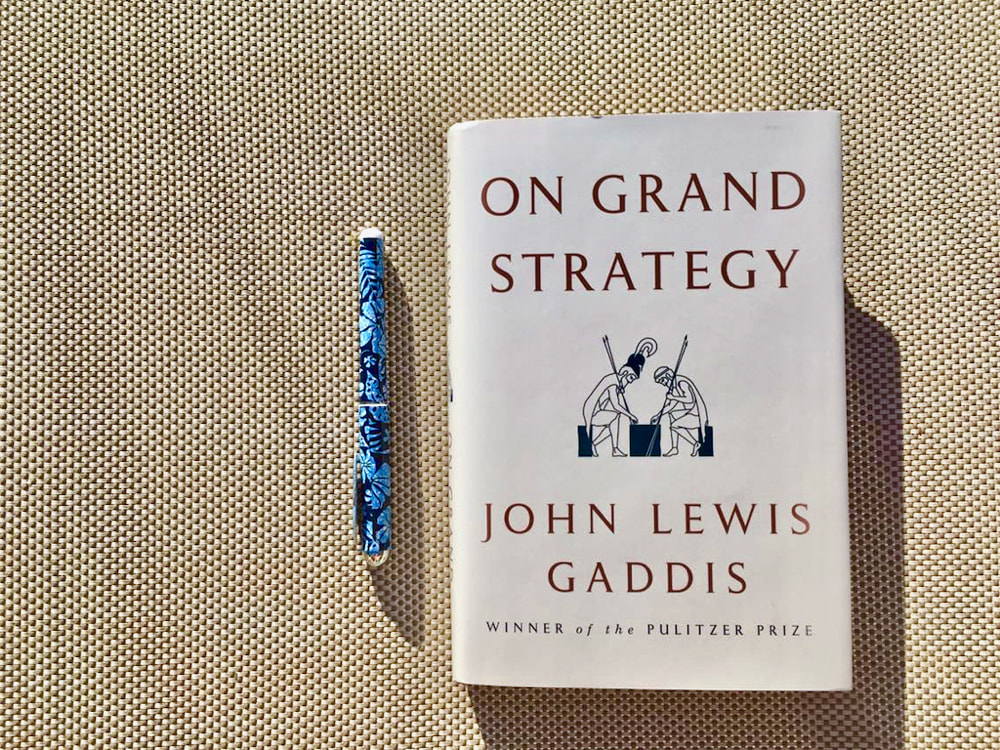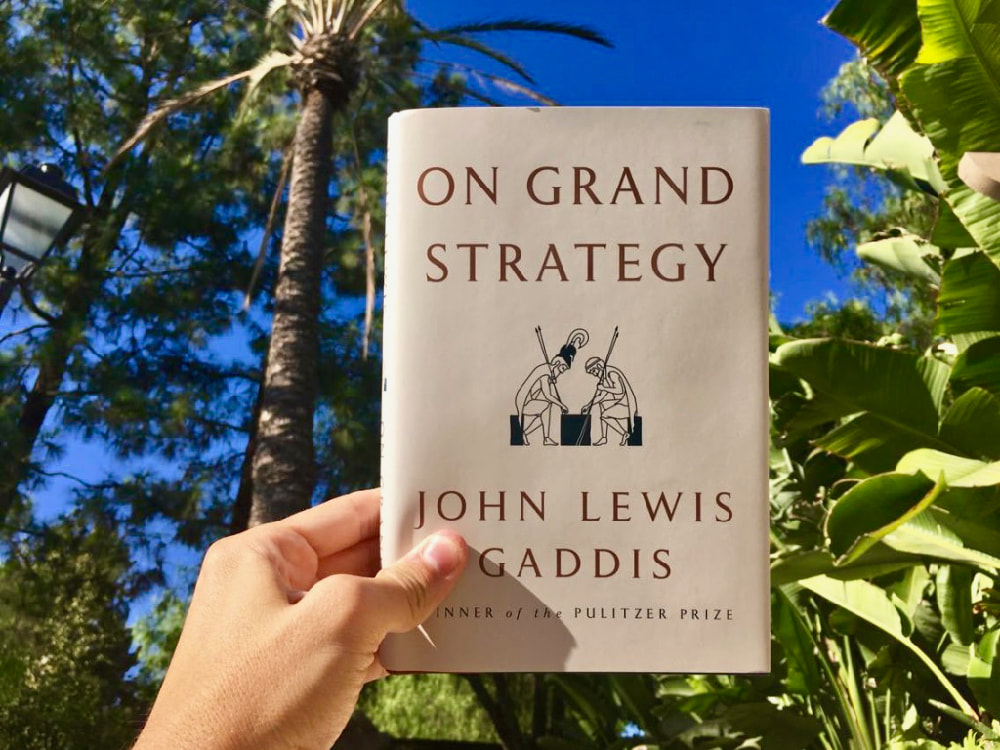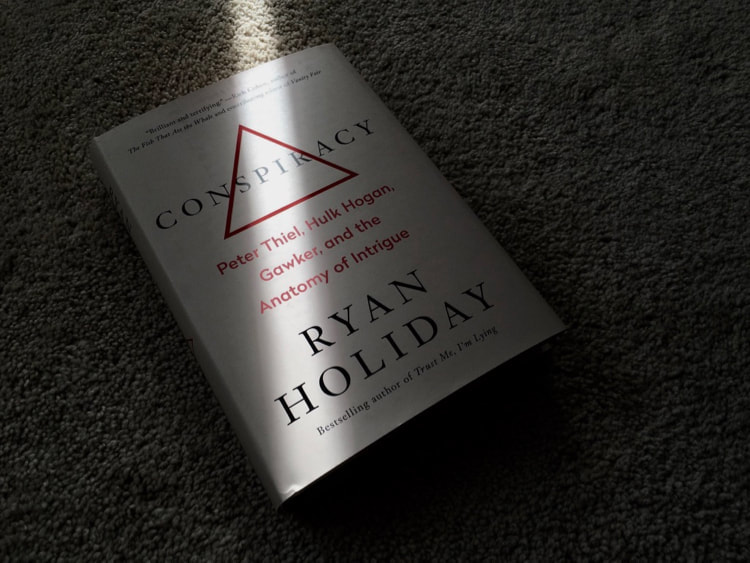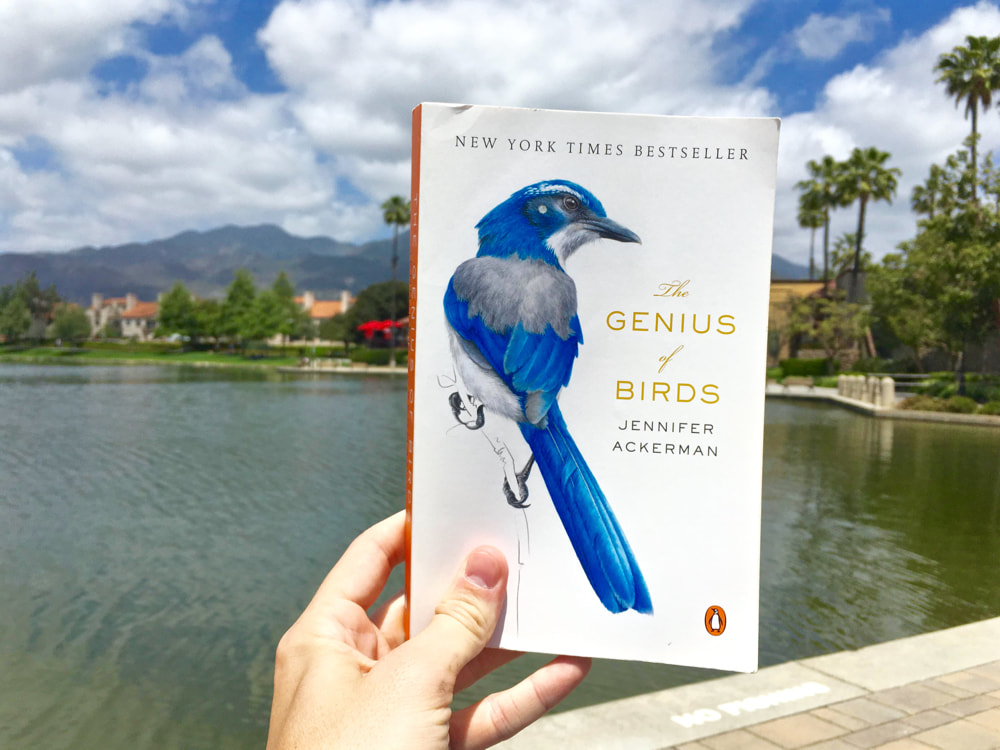Yale Professor and Cold War expert John Lewis Gaddis' On Grand Strategy is a masterclass in leadership. Organized into ten self-contained, tightly-bound chapters, the book serves as a primer on grand strategy with historical examples from ancient China, Greece, Persia, and Rome, up through medieval Europe, Elizabethan England, Napoleon's Europe, Lincoln's Union, and leaders of the 20th Century. With spectacular flourishes, Gaddis weaves together the war meditations of Clausewitz and Sun Tzu with Machiavelli's discourses on statecraft, FDR's geo-political maneuvering, and Tolstoy's employment of interconnected narratives, mapping the mindset needed to achieve great ends.
This mindset, the author contends, has perhaps already best been laid out, with Aesopian brevity, in a fragment from the Greek poet, Archilochus: "The fox knows many things, but the hedgehog knows one big thing." Only by marrying the lofty ideal goal with the solid reality can a strategy succeed. Time, space, and resources must be employed neither solely in lock-step hegemony ("hedgehog") nor directionless bounding ("fox"). Xerxes' famous hedgehog-ing during his invasion of Greece led to his end at first delayed by the Hellespont river, delayed further by the Spartans at Thermopylae, and then disintegrated by his lack of supply chains and naval tactics.
"This is a book," Gaddis writes, "about the mental Hellesponts that divide such leadership, on one shore, from common sense, on the other. There ought to be free and frequent crossings between them, for it's only with such exchanges that grand strategies—alignments of means with ends—become possible. But the currents are swift, the winds are untrustworthy, and the bridges are fragile."
On Grand Strategy is a semester's worth of seminars from antiquity, that we can attend in order to create out our plans "...informed by the past, linked to the present, for achieving some future goal." [JG]
This mindset, the author contends, has perhaps already best been laid out, with Aesopian brevity, in a fragment from the Greek poet, Archilochus: "The fox knows many things, but the hedgehog knows one big thing." Only by marrying the lofty ideal goal with the solid reality can a strategy succeed. Time, space, and resources must be employed neither solely in lock-step hegemony ("hedgehog") nor directionless bounding ("fox"). Xerxes' famous hedgehog-ing during his invasion of Greece led to his end at first delayed by the Hellespont river, delayed further by the Spartans at Thermopylae, and then disintegrated by his lack of supply chains and naval tactics.
"This is a book," Gaddis writes, "about the mental Hellesponts that divide such leadership, on one shore, from common sense, on the other. There ought to be free and frequent crossings between them, for it's only with such exchanges that grand strategies—alignments of means with ends—become possible. But the currents are swift, the winds are untrustworthy, and the bridges are fragile."
On Grand Strategy is a semester's worth of seminars from antiquity, that we can attend in order to create out our plans "...informed by the past, linked to the present, for achieving some future goal." [JG]
| 📸: Penguin Press |
WHO IS JOHN LEWIS GADDIS?
| John Lewis Gaddis is the the Robert A. Lovett Professor of History at Yale University and the founding director of the Brady-Johnson Program in Grand Strategy. His previous works include The United States and the Origins of the Cold War, The Landscape of History, Strategies of Containment, and many others. Professor Gaddis teaches courses on Cold War history, grand strategy, biography, and historical methodology. In 2012, is George F. Kennan: An American Life won the Pulitzer Prize in Biography. |
| "To know the past only in static terms--as moments frozen in time and space--would be...disabling, because we're the progeny of progressions, across time and space that shift from small scales to big ones and back again. We know these through narratives, whether historical or fictional or a combination of both Thucydides and Tolstoy are, therefore, closer than you might think, and we're fortunate to be able to attend their seminars whenever we like." — John Lewis Gaddis, On Grand Strategy |
YOU MAY ALSO LIKE

























